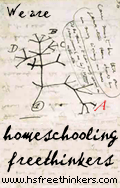From the mid-80s study A Nation at Risk by the National Commission on Excellence in Education:
If an unfriendly foreign power had attempted to impose on America the mediocre educational performance that exists today, we might have viewed it as an act of war. As it stands, we have allowed this to happen ourselves...we have, in effect, been committing an act of unthinking, unilateral educational disarmament.
--------------
...modern education...is leery of seeking out and acknowledging distinctions between good and bad, better and worse. It does not teach the arts of discrimination. We suffer from an atrophy of the judging faculty.
Simmons goes on to say that the way to acquire a good taste in anything is to be familiar with the best specimens of each.
--------------
Everett Dean Martin's definition from The Meaning of a Liberal Education:
...the kind of education which sets the mind free from the servitude of the crowd and from vulgar self-interests.
--------------
What purposes should education, at its most enlightened serve? [Sir Richard] Livingstone listed three functions, to wit: to teach us to earn a living; to teach us to be good citizens; and to help us to understand the meaning of the good life. The first objective, he wrote, we understand all too well, and the second is treated with growing neglect. But the third is almost irretrievably lost.
--------------
If a society be rigid and authoritarian, children are taught obedience; if it be equalitarian, they are taught first their rights as citizens and secondly of their civil obligations. Likewise, a vocationally minded, commercial society will betray its priorities by placing training-for-jobs above all else: getting on is the goal.
--------------
For the Greeks and Romans both, education was "essentially an initiation into the Greek way of life, molding the child and the adolescent in accordance with the national customs and submitting him to a particular style of living -- the style that distinguished man from the brutes, Greeks from the barbarians" (Marrou). Theirs became a bookish culture. And neither brutes nor barbarians can read.
---------------
W.H. Auden:
...the bewildered comment of any fifth century Athenian upon our society from Dante's time till our own...would surely be: 'Yes, I can see all the works of a great civilization; but why cannot I meet any civilized persons? I only encounter specialists, artists who know nothing of science, scientists who know nothing of art, philosophers who have no interest in God, priests unconcerned with politics, politicians who only know other politicians.'
---------------
T.S. Eliot:
No one can become really educated, without having pursued some study in which he took no interest -- for it is part of an education to learn to interest ourselves in subjects for which we have no aptitude.
-------------
First, regarding home educators and the misuse of the term "classical," Simmons points out that, "To many homeschoolers, "classical education" simply means the opposite of whatever is going on in those dreaded public schools." He asserts that a classical education not only sought to instill knowledge, but to polish and refine. That rigor nor beauty in language could be accomplished without Greek and Latin for they together provided a mental gymnastic and training in taste. So basically, it's simple addition: Latin and/or Greek + The Trivium (grammar, logic, and rhetoric, as courses of study, not merely organizational categories) + The Quadrivium (astronomy, music, geometry, arithmetic) = Classical.
So now, how do you do this, you ask? Well for starters, there's no whining involved. This is tough stuff, thus the metaphor of climbing Parnassus, the Greek peak symbolizing the source of inspiration and eloquence. Mountain climbing, that's what this is. But really, does anything worth having ever come easy?
-- Drill, drill, drill. Children were taught letters and numbers deliberately beginning around the age of seven. There was, as Simmons says, "no adult concerned apparently about the deadening effect upon a child's creativity or individuality."
-- Reading was not to be broad or inclusive, but good: it should consist of the best. Readings included both historic and philosophical matters.
-- Poetry. The primary goal of the literary focus in ancient days was an understanding of the material, not the expression of students' opinions. Poems were memorized. There were very few instances of students being required to write poetry. The pupils job "was not to express themselves, but to bow humbly at the feet of others. They were apprentices. They were to know, not to be known."
-- Socratic dialogue. Classical instructors used this teaching device where the student actively participates in discussion through rigorous questioning.
-- Critical thinking? Literary and cultural knowledge made up the body of students' lessons. Critical thinking skills were not taught separately, but acquired naturally along the way as students pursued this course of study.
Pretty basic, right? Gather up your gear and head for the mountains.
Now having said all that, I come to the part of the book that has me wondering. The main piece of climbing equipment for the ascent is said to be "a good and teachable disposition." Nature is the great leveler. "One must be born with an educable nature."
Simmons explains perhaps the true nature of "gifted," as being gifted with the passion for learning. But it is generally believed by many classical instructors from ancient times up through the Renaissance (and maybe later in the book by modern classical teachers, I'm not there yet) that schooling offered opportunity for all -- "or at least for all of the talented. ...nature had not fit all people for learning. To get the most out of a study one needed not simply capacity for learning, but a "taste" for it; learning ought not to be forced upon a student unequal to its rigors and intellectual largesse."
You must understand the distinction that there are two types of education, of which any thriving nation requires both: "instrumental" which equals vocational training and "formative" which forms the mind and creates a truly educated person. "All but the mentally crippled can walk at least one of these roads. Some people are trained; some are educated; some are both. ...All can travel the first road of training, but few the second."
My question is then: How do you know which road you walk? Where do you draw the line? When educating your children is there a point where you should begin preparing them strictly for vocational pursuits, or do you push on and hope for the best? Or do you cover all bets and work toward both? If you are yourself incapable of providing the true classical, formative education, assuming you are one who should have maybe followed the instrumental path, being left behind in the foothills of Parnassus, can you recognize that in yourself? Could it be that your vocational pursuit may be teaching?
Also, Simmons states that, "Classical study was incumbent upon all who wished to rise above their stations in life by intellectual effort." Is this possible today with a dearth of educational facilities teaching classically and the available schools costing dearly? Can such a rigorous study be successful on one's own?
Stephanie has had some good posts on classical education starting here, and here, and also here. All have links to additional informative replies and comments.











No comments:
Post a Comment